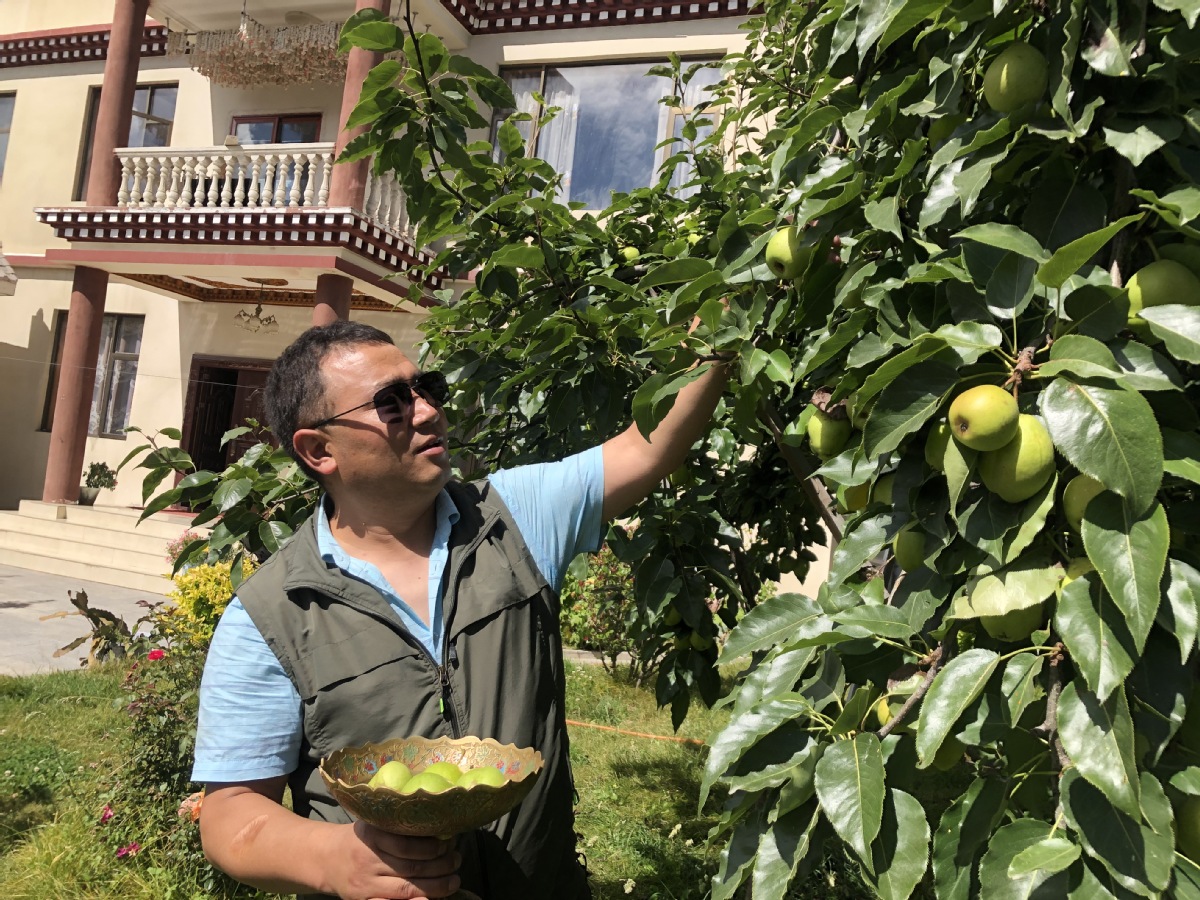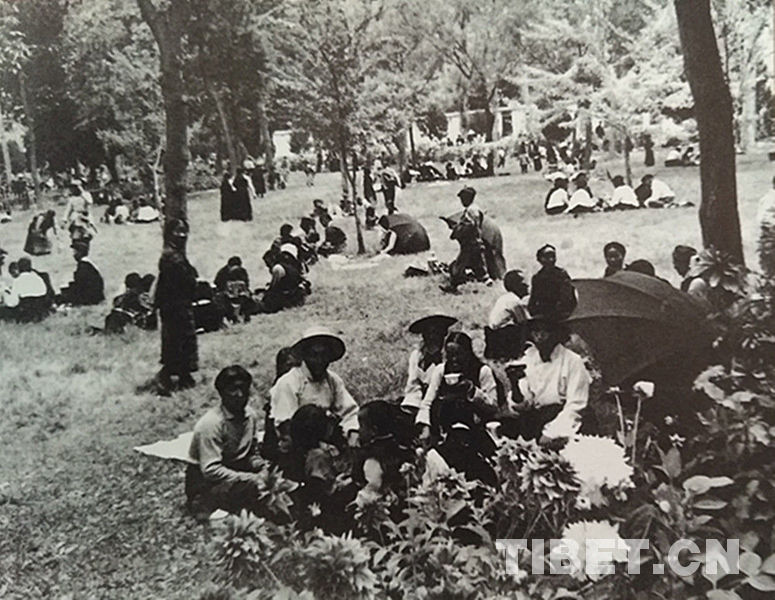Tibet orchard contributes to livelihood and the ecology
Every morning before 9 am, Metok Pema rides her electric bicycle to work at an orchard, carrying a pair of gloves and a spade.
The 42-year-old Tibetan farmer is pleased to work at this orchard as it is a stable job and takes her only 15 minutes to ride from her home in Samye township, in the Dranang county of Southwest China's Tibet autonomous region.
"In the past, I had to travel long distances to find work. It was not convenient. But now my job is near my home, I can better handle both housework and farming," said Metok Pema, who is from Samye village.
Located opposite of Hepori Mountain, one of Tibet's sacred Buddhism mountains, and Samye, Tibet's first Buddhist monastery, the orchard started operation in 2017 as a poverty alleviation project with support from local government and has generated income for Tibetan villagers and improved ecological protection since then.
With an investment of more than 40 million yuan ($6 million) from Elion Resources Group, the orchard, which covers 90 hectares of sandy land, grows fruit trees such as nectarines and honey peaches. Based in Beijing, Elion is a private company focusing on ecological industry.
Jobs for farmers
So far, the project has provided jobs for 500 Tibetan local farmers from Samye township, including 15 from Samye village, with a total payroll of more than 4 million yuan ($582,000) over the last few years. Each worker gets 160 yuan for every working day.
Metok Pema and her husband grow hullless barley, peas and potatoes for food, and they needed to work part time at construction sites before Metok Pema joined the orchard in 2017. She said she has made an average of 20,000 yuan annually since 2017.
"My main work includes watering the trees and management of the orchard. The work is not heavy," Metok Pema said.
With stable income comes better living conditions. Metok Pema said she can purchase more daily necessities for her family now, while in the past, she couldn't afford an electric bike. "I used to borrow money to support my daughter in the college. But now I have enough money," she said. "After working in the orchard for three years, I have learned some basic skills of tree plantation. I also plant some trees at home, and they grow well."
Tsering Choedron, who is also from the same village as Metok Pema, considers the orchard, which is within walking distance from her home, as an ideal place for increasing family income after working there for four months.
Tsering Choedron's daily work includes watering the plants and weeding, and she receives a daily pay of 160 yuan.
"The salary is not bad. The main point is that it is very close to my home so that I can better manage my housework," she said.
"With extra income added to earnings from farming and other work, I can take better care of my two kids and support my family with its financial needs."
Benefiting entire village
Lei Feng, Party secretary of Dranang county, said the economic fruit tree project is one of the county's poverty alleviation projects and has contributed to poverty reduction by providing job opportunities to local people.
According to Lei, the Samye township was stripped out of poverty in 2017, and the Dranang county was lifted out of poverty in 2018.
"The land belongs to the village collective. By renting it to the enterprise that operates the business, the whole village can benefit from it," Lei said.
He said another main goal of the orchard project is to control desertification, which is severe in this area, by planting trees and flowers.
"Before the orchard project started, this place was very sandy and it affected people's health and work. Now the situation has greatly improved with the planting of flowers, grass and trees," he said.
Lei said the orchard project also provided tree seedlings to the villagers so they could plant the trees in their homes and could benefit financially by selling fruits to the market in the near future.
Hu Richa, a staff member of the Elion Resources Group who is responsible for the project, said the location of the orchard was a desert before 2017. Through soil amelioration and planting of proper fruit trees, the orchard produces more than 20 kinds of fruits.
"We did much fieldwork and research to make sure the trees have fruits. We also encourage the villagers to plant the trees in their own home, and we can buy their fruits in the future," said Hu.
"Our company is experienced in desertification management and fruits tree plantation," he said. "By involving local villagers in the project, our goal is to benefit local villagers through income increase while protecting the fragile environment."
Tibet Stories

Ex-lumberman shows way to prosperity
Norbu Tsering led his fellow villagers to start a transportation business 20 years ago.

